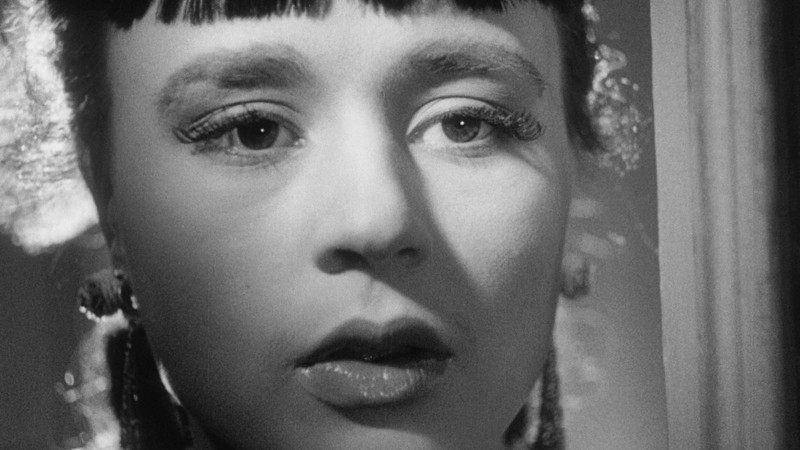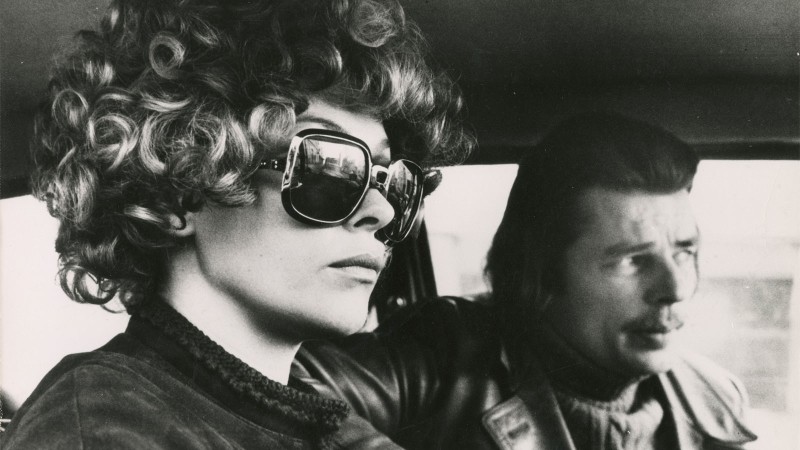Under the Surface

Even with Venice and Telluride underway and Toronto opening on Thursday, we shouldn’t hesitate to take a moment to assess this summer’s bounty. Contributors to Screen Slate as well as Film Comment’s Devika Girish and Inney Prakash take stock of this year’s Locarno Film Festival, while Robert Daniels (RogerEbert.com) and Victor Morozov (Films in Frame) pick out the highlights of the retrospective celebrating the hundredth anniversary of Columbia Pictures.
- During the pandemic, Edgar Wright asked Martin Scorsese about some of his favorite British films, and Scorsese replied with a list of fifty. Assuming Wright was familiar with the greats—Powell and Pressburger, Hitchcock, and so on—Scorsese kept the list personal and subjective, leaning into overlooked titles directed by such filmmakers as Terence Fisher, Leslie Arliss, and Roy Ward Baker. Twenty-two of those films are screening through October 8 in the BFI season Martin Scorsese Selects Hidden Gems of British Cinema. For Sight and Sound, James Bell talks at richly entertaining length with Wright and Scorsese. “In England,” says Scorsese, “there is something under the surface, and in the Hammer films and the noirs and the gothic pictures, all these things seep through. One becomes aware of the darker side. The more polite you are, the more the darker side makes itself known. There are elements of that in The King of Comedy [1982] . . . I happened to look again at Kind Hearts and Coronets [1949] and it’s all there, that under-the-surface violence.”
- “Is there a ‘Seventh Generation’ of Chinese filmmakers?” asks Leo Robson in a piece for the New Left Review that begins with a brisk primer on the Fifth (Zhang Yimou, Tian Zhuangzhuang, Chen Kaige) and Sixth (Jia Zhangke, Wang Xiaoshuai, Lou Ye) Generations. “There are a handful of potential factors behind the reluctance to anoint a successor gang to Jia and co., a new class,” writes Robson. “Younger directors have not arrived *en masse,* with a succession of similar or similarly notable debuts.” And yet “the culture of descent—of Chinese cinema as a site of baton-passing—has remained strong . . . For now, the closest to an heir to this story of inheritance and rebellion, a frontrunner for the status of Jia’s dauphin, appears to be the thirty-three-year-old Wei Shujun,” whose Only the River Flows (2023) is “aggressively thematic, insistently self-reflexive.”
- Robson notes that Hou Hsiao-hsien is an uneasy fit on the timeline and that his “trajectory goes some way to complicating the Mainland narrative of successive and seesawing philosophies.” With the Metrograph series Daring Motion: The Films of Mark Lee Ping-bing opening on September 6, Bradford Young (Pariah, Selma, Arrival) talks with a fellow cinematographer who has worked with Hou on such films as A Time to Live and a Time to Die (1985) and Millennium Mambo (2001) as well as with Tran Anh Hung, Hirokazu Kore-eda, and Ann Hui. “I can express my voice on three different levels, through three different beliefs,” says Lee. “The first is that I always think the scene and the space should be left for the director and actors . . . The second is very much about the idea of taking risks, trying something new every time . . . On the third, a huge part of my voice has developed by working with other filmmakers through trial and error. I remember when I was working with Wong Kar Wai on Fallen Angels (1995), I learned that in terms of what you can do with your camera—with your lights and your frame, your apertures, all the different things—the possibilities are endless.”
- In a brief essay that serves as a program note for Film Comment Live: The Rebel’s Cinema—Frantz Fanon on Screen, a series running at four venues in New York through Sunday, Adam Shatz, the author of The Rebel’s Clinic: The Revolutionary Lives of Frantz Fanon, notes that Gillo Pontecorvo, Ousmane Sembène, Claude Lanzmann, Glauber Rocha, Claire Denis, Med Hondo, and Sarah Maldoror are among the filmmakers who have “alluded to Fanon in their work, or cited him as an influence . . . Their interest in the author of Black Skin, White Masks and The Wretched of the Earth is hardly surprising. Fanon’s writings on racism, colonialism, and national liberation struggles have the most fundamental elements of picture-making: a riveting plot (the existential, violent drama of decolonization), intense emotions, and arresting imagery.”
- Our releases this week of Real Life (1979) and Mother (1996) have prompted the Reveal’s Scott Tobias to reflect on the perhaps surprisingly consistent screen persona of Albert Brooks: “There are many arguments to be made for the greatness of Brooks as a writer-director—his gift for ingenious conceits, carried over from his stand-up and late-night appearances; his willingness to use comedy to square up to life’s most fundamental issues; his subtle observational camera style, etc.—but his true potency may lie in his total lack of vanity, which may also explain why his films have struggled at the box office. The cinema is full of director-stars, even ones willing to dip into self-deprecation, but Brooks makes personal films that rigorously explore his worst image of himself.”



